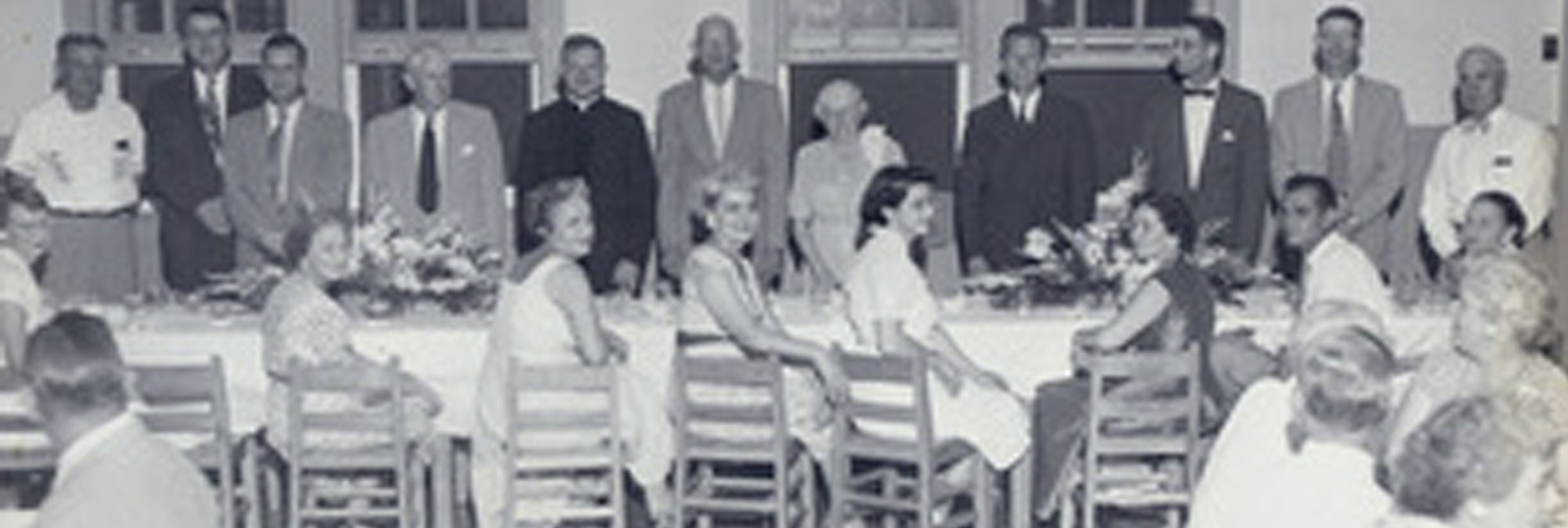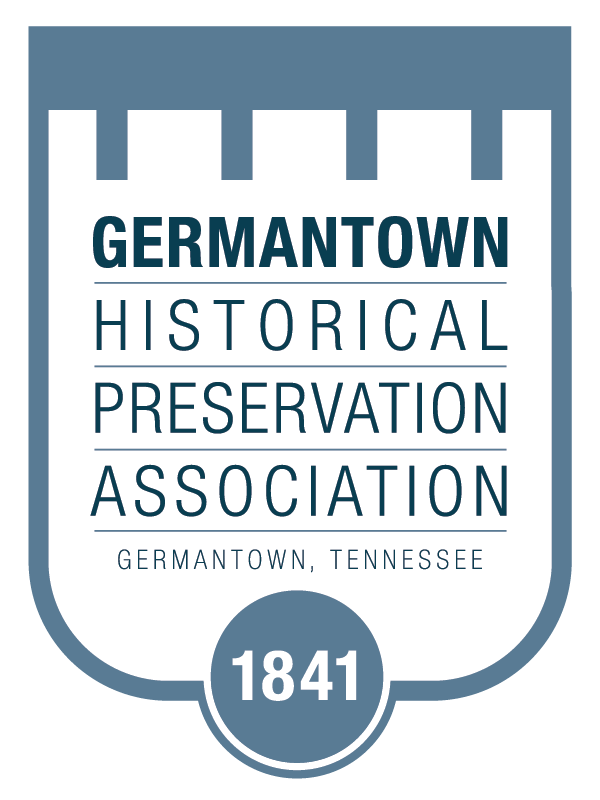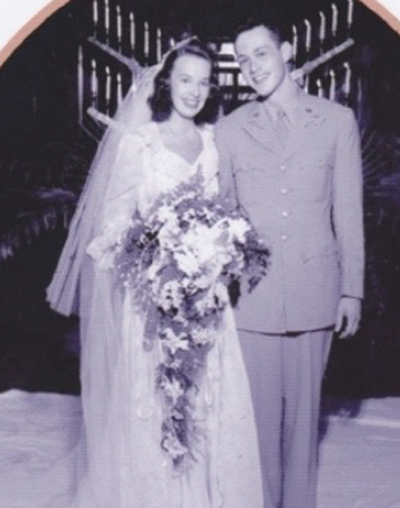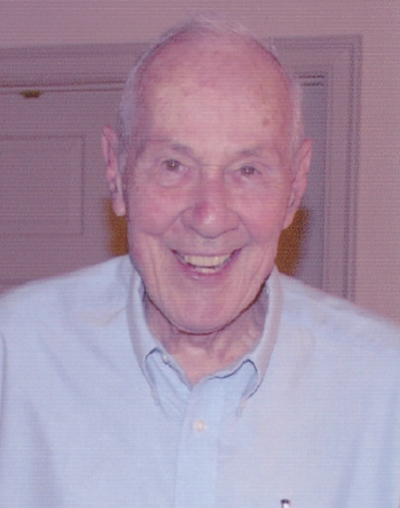
“Lee” Winchester, Jr.
Richard Henry Lee “Lee” Winchester, Jr.
Germantown Historic Commission Interview
August 8, 2007
Lee Winchester’s family emigrated from England and his family, in Winchester circles, was known as the 1st Maryland branch. Lee is distantly related to General James Winchester, one of the founders of Memphis. General Winchester had a vision of establishing mass transportation by water and sent his son, Marcus, to Memphis to further this vision. Markus Winchester became the first mayor of Memphis.
Lee was the son of Cassius Lee Winchester, the youngest of four children born to Cassius and Harriet Haywood Bond. Harriet was from Brownsville, TN. When Lee was born, his father was determined that he not have the name Cassius as a “junior” and his mother was just as determined that he would be a “junior”. His birth certificate thus reads, Richard Henry Lee Winchester (named for a signer of the Declaration of Independence), son of Cassius Lee Winchester.
Lee‘s family moved to Germantown in 1956 and they lived on Pete Mitchell Road until 1976. Pete Mitchell Road, which once crossed north of Poplar Avenue is still located to the south between Poplar Avenue and Dogwood Road. His brother Jim lived in the old Pete Mitchell family home with Lee’s family next door. Billy and Carroll Cowan as well as Glen Miller had also lived there before. Lee stated that Exeter Road used to be our old ballfield. On the other side of Exeter Road was a gravel pit where we fished. Their property was later sold to a developer and the Kroger store was built where the Winchesters lived. He described it, “as much as we can tell, our kitchen is now the meat counter in Kroger’s supermarket (now Trader Joe’s and The Container Store).”
His father began a law firm in Memphis over 100 years ago which is still in business today. Lee’s son, Rick, carries on that firm. Lee went to Law School at the University of Tennessee – Knoxville and practiced law with his brother, Jim. The two lived in close proximity to each other, moving four or five times, but never more than 200 yards of each other’s homes.
Lee went to Culver Military school in Indiana and there went through junior grade and advanced ROTC. He met his wife, Bette Anne Thompson at college in Knoxville where Lee was a member of the SAE fraternity.
During WWII Lee was in the Infantry working with heavy weapons. He was a captain in the Infantry and a company commander. He described his military career as “mean, lengthy and messy.” He was very young when he was charged with command. When he finished his service in the Army of Occupation in Japan, he had 1,000 men under his command. He was 22 years old.
When Lee returned home, he had his mother call Bette on the telephone so that he could propose marriage to her. They married in 1944. Bette’s father, Mr. Thompson, was a commercial photographer. He took early pictures of the Smokey Mountains which he took to Washington and proved influential in the Smokeys becoming a national park. As of the date of this interview they had been married 63 years.
After their wedding, they moved back to Memphis, where he and Bette had a little farm of 200 acres in Capleville with his brother Jim.
In 1956, Germantown’s population was 862 citizens and in order to receive more money from the state, a Planning Commission was formed. They needed a chairman. Lee was asked to be the City Attorney. In the first six months, Poplar Estates and Germantown Heights were developed necessitating legal documents and plats. Lee remembered the early businesses as Vannuchi Brothers Liberty Cash Grocery Store, Walker Radiator Works, Posey Drug Store, Gholson’s Esso Service Station, and Mr. McHenry’s Hardware Store.
Lee belonged to the Civic Club which was very influential in making Germantown what it is today.
Lee handled a lawsuit against the Southern Railroad to keep them from putting a switchyard in Germantown. The lawsuit lasted a year and a half, and the railroad gave up their attempt to the switchyard. It made a dramatic impact on the growth pattern.
Shortly afterward, Melanie Smith won her national victory as an equestrian. The Winchesters went over to Hugh Frank Smith’s home to celebrate. He said that it was a wonderful breakfast with everything being home-made even to the colored eggs from the Smith’s chickens.
Lee handled three lawsuits regarding liquor licenses in Germantown. The selling of liquor was opposed by the city, but the city finally relented for the citizens who said they would go outside of Germantown to purchase their liquor. Alio Lunati finally got a liquor license. (His liquor store was located one lot east of the present Independent Bank on Poplar and its design would influence much of the early architecture). However, one license that was applied for near the Baptist church was contested by Pastor Ken Story as being too close to the church. This case was taken to Nashville to decide and the Baptist Church won. After their “win”, Lee suggested to Ken that they celebrate with a “drink” to which Ken replied that Lee was “totally incorrigible.” Lee described Germantown as being “snobby and a tough area for outsiders.” The attitudes of the community were very close-knit. Churches, neighborhoods, businesses should all work together.
The Winchesters had three children, Robin the oldest, followed by two boys, Rick and John. They had 12 grandchildren and 6 great-grandchildren. Rich became a lawyer and John went into business as well as being a liaison between commercial landlords and tenants.
Lee’s addiction was always hunting and fishing. He did not hunt deer as early on as they were not in abundance and he did not want to kill anything that he could not use for food.
Lee went into the banking business in 1975, establishing with others the first bank of Shelby County, the Bank of Germantown. It was the first bank to open up on Saturdays. This was a new idea. He referred to the “3-6-3” meaning they would pay customers 3% interest, charge 6% to borrow money, and be on the golf course by 3 p.m.
Lee’s first job was selling “belly washers” at a pop stand that his brother had at the corner of Poplar and Parkway. He also sold cold drink s to golfers at Overton Park. The guard would run after them but was slow enough for them to get away.


